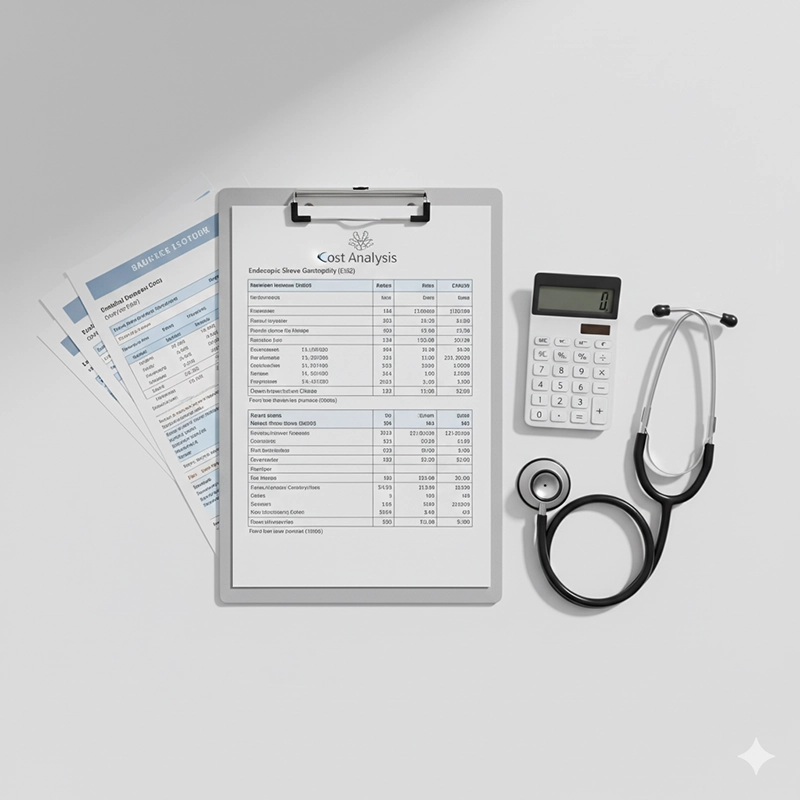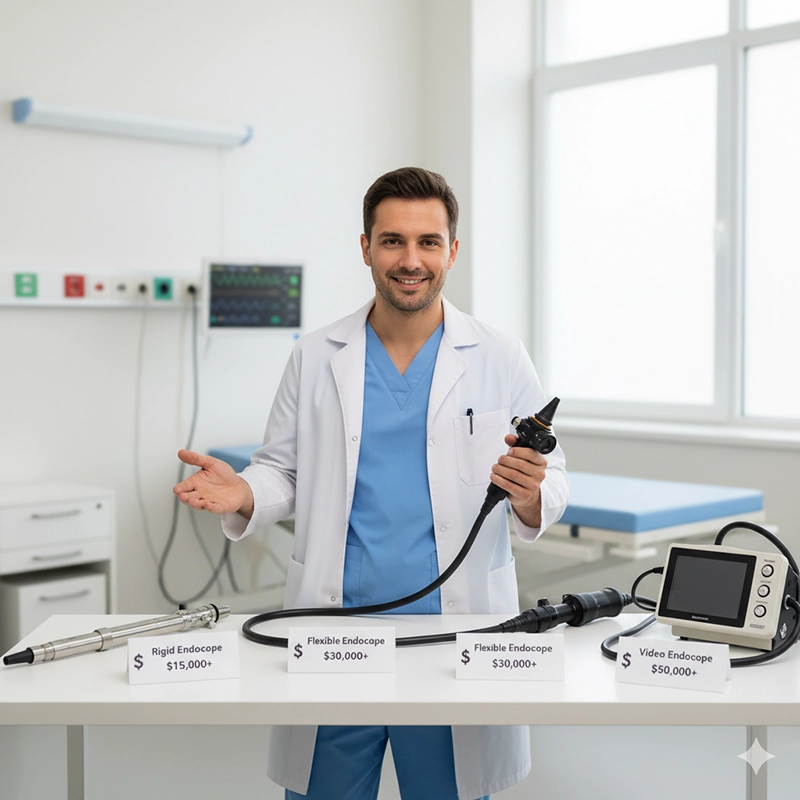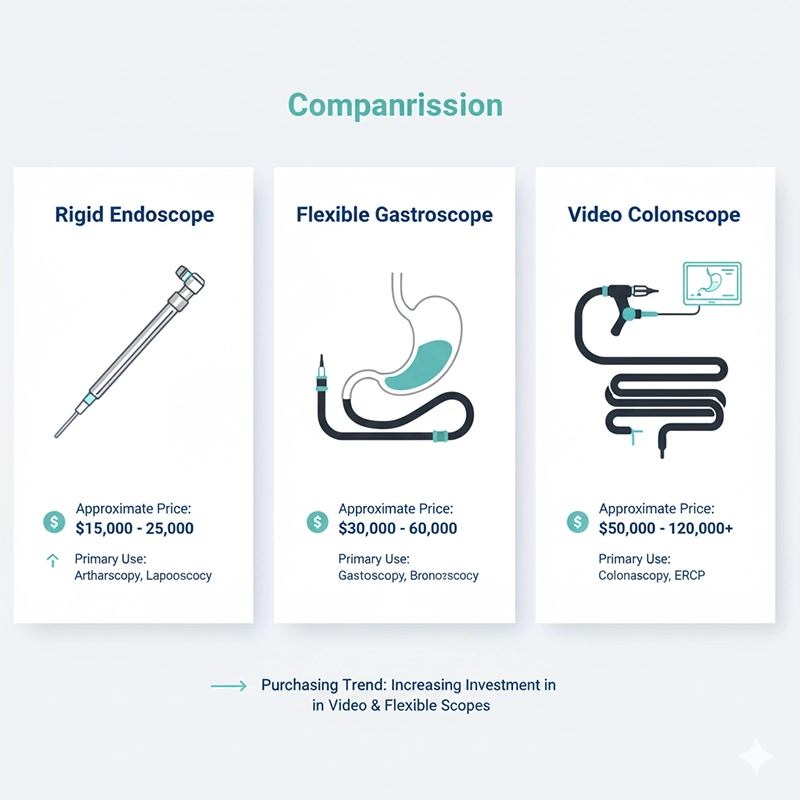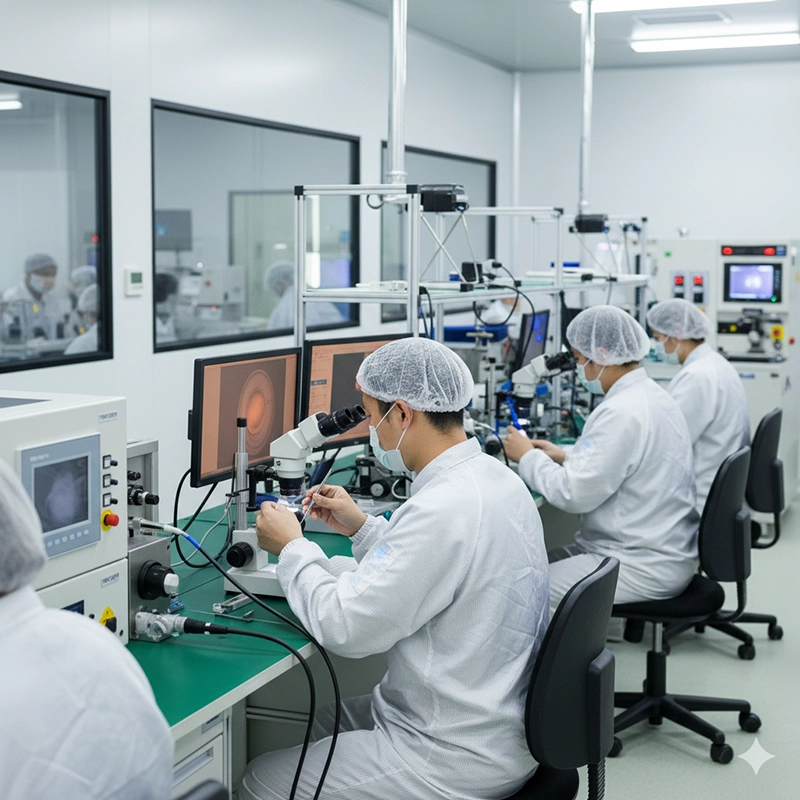Table of Contents
The cost of a medical endoscope typically ranges from $1,000 to over $50,000 depending on the type, technology, brand, and supplier. Basic rigid medical endoscopes may cost a few thousand dollars, while advanced video endoscopes with high-definition imaging and integrated processors can exceed $40,000. Disposable endoscopes are priced lower per unit but involve recurring costs, making the total budget highly dependent on hospital procurement strategy.
When hospitals, clinics, or distributors evaluate medical endoscope cost, they need to understand that pricing varies widely across different categories. Entry-level rigid scopes for ENT or urology may cost between $1,000 and $5,000. Flexible endoscopes, which are more complex, typically range from $5,000 to $15,000. High-definition video endoscopes with digital imaging capabilities may cost $20,000 to $50,000. The choice between reusable and disposable endoscopes also plays a major role in budget allocation.
Endoscopes come in multiple forms, each with unique pricing. Hospitals rarely purchase just one model; they need complete sets tailored to specialties.
Commonly used in arthroscopy, laparoscopy, and ENT procedures.
Prices: $1,500 – $6,000 depending on size, material, and optical clarity.
Durability and easier sterilization keep long-term cost lower.
Used for gastrointestinal, colonoscopy, and bronchoscopy applications.
Prices: $5,000 – $15,000 for standard models.
High-definition flexible endoscopes may exceed $20,000.
Video endoscopes integrate a digital camera at the tip for enhanced imaging.
Price: $15,000 – $50,000 depending on resolution and processor compatibility.
Fiber optic endoscopes are generally less expensive but are being phased out.
Disposable medical endoscopes: $200 – $800 per unit, often used in urology and bronchoscopy.
Reusable endoscopes: higher upfront cost but lower per-procedure cost after long-term use.
Hospitals weigh infection-control benefits of disposable scopes against recurring expenditure.
Procurement managers consider multiple elements when assessing endoscope price. Beyond type and application, specific features significantly influence cost.
Manufacturing Technology: Digital video endoscopes require advanced sensors and processors, raising cost compared to fiber optic scopes.
Materials and Build Quality: Stainless steel, high-grade polymers, and special optics contribute to durability and price.
Imaging Resolution: Full HD or 4K video systems command premium prices.
Sterilization and Compliance: Devices compatible with advanced sterilization systems meet FDA/CE standards but increase investment.
OEM/ODM Customization: Endoscope factories like XBX provide OEM solutions for hospitals, affecting cost based on order volume and customization.
Different departments demand different scopes, and each category comes with distinct pricing.
Gastroscopes typically cost between $8,000 and $18,000 depending on whether they are standard definition or high-definition models. OEM gastroscope solutions may include bundled processors, raising total system price.
Colonoscopy systems range from $10,000 to $20,000. Video colonoscopes with advanced imaging modes are priced at the higher end. Disposable colonoscopes are available but remain more costly per use.
Bronchoscopes are priced from $5,000 to $12,000 for reusable models, while single-use disposable bronchoscopes cost $250 – $600 per piece. Procurement decisions depend on infection control requirements and procedure volume.
Cystoscopes may range from $4,000 to $10,000, while flexible ureteroscopes used in urology procedures often exceed $12,000 due to delicate fiber design and higher breakage rates.
Arthroscope: $3,000 – $8,000 depending on diameter and application.
Hysteroscope: $5,000 – $12,000 with accessory sets.
Laryngoscope: $2,000 – $5,000, with video laryngoscopes higher.
Procurement teams must also evaluate the cost of related equipment. Endoscopes are not stand-alone devices; they require supporting systems.
| Equipment | Average Cost Range |
|---|---|
| Medical Endoscope (rigid/flexible) | $1,500 – $50,000 |
| Laparoscope | $2,000 – $7,000 |
| Cystoscope | $4,000 – $10,000 |
| Light Source & Camera | $3,000 – $15,000 |
| Monitor & Processor | $5,000 – $20,000 |
This table shows that the full endoscopic setup cost is often much higher than the scope alone. Hospitals budgeting for a new department should account for all supporting devices.
Understanding medical endoscope cost also requires a look at the global market. Regional manufacturing differences, trade policies, and healthcare demands all influence pricing. Hospitals and distributors often compare suppliers across Asia, Europe, and North America to secure the most competitive deals.
In the United States and Europe, medical endoscopes tend to be priced higher due to strict regulatory compliance, advanced technology integration, and established brand reputations. Video endoscopes in these regions may exceed $40,000, while rigid endoscopes are generally priced above $3,000. The cost reflects not only the device but also certification and after-sales service quality.
Asian countries, particularly China, Japan, and South Korea, have become global hubs for endoscope manufacturing. Medical endoscope factories in Asia can offer devices at 20–40% lower prices than European or American counterparts. For instance, a flexible endoscope priced at $15,000 in Europe may be sourced at $10,000–$12,000 from an Asian supplier with FDA/CE certification. XBX Endoscope, for example, provides OEM and ODM services for hospitals worldwide, balancing affordability and compliance.
In regions such as Latin America, Africa, and Southeast Asia, cost sensitivity is high. Hospitals often opt for refurbished or mid-tier models to reduce initial investment. Disposable endoscopes are gaining traction in these areas because they eliminate costly sterilization systems, despite higher long-term consumable costs.
Choosing the right medical endoscope is not just about comparing price tags. Procurement managers must balance cost, performance, and long-term value. Below are critical considerations:
Rigid scopes: lower upfront cost, high durability, ideal for frequent use.
Flexible scopes: higher initial price, but provide access to more procedures.
Video scopes: highest upfront investment, but superior image quality improves diagnostic accuracy.
Medical endoscope suppliers vary in scale and reliability. Hospitals should request quotations from multiple endoscope factories, comparing certification, warranties, and after-sales support. A reliable endoscope supplier provides documentation such as ISO 13485, CE, or FDA approvals, which ensure quality and compliance.
Service packages and warranty terms influence total cost of ownership. A $10,000 scope without service support may become more expensive than a $15,000 scope with a five-year warranty and annual maintenance. Hospitals are encouraged to evaluate long-term support rather than focusing solely on initial price.
Request bundled deals including light sources, processors, and monitors.
Negotiate discounts for bulk orders across multiple departments.
Consider leasing or financing models for high-cost video endoscopes.
Ask suppliers about refurbishment programs to extend lifecycle value.
A key element of cost management is selecting the right supplier. The lowest-cost option may not provide the best long-term results. A reliable endoscope factory or distributor offers quality assurance, compliance, and consistent delivery schedules.
Verify certifications: ISO 13485, CE Mark, FDA clearance.
Review factory experience and track record in medical endoscope manufacturing.
Check compatibility with existing hospital systems.
Confirm lead times, especially for bulk hospital procurement.
Evaluate customer references and case studies.
Some procurement managers are tempted by extremely low-cost medical endoscopes offered online. However, devices without regulatory approval may not be safe for patients and can lead to expensive compliance issues. In some cases, non-certified scopes fail sterilization testing, creating significant risks.
Established suppliers like XBX Endoscope provide OEM and ODM customization options for hospitals, ensuring devices meet unique clinical needs. Partnering with a trusted supplier allows healthcare facilities to secure long-term contracts, predictable costs, and reliable quality control. For distributors, sourcing from such suppliers strengthens competitiveness in regional markets.
When evaluating medical endoscope cost, hospitals must consider total cost of ownership (TCO) rather than only purchase price. TCO includes acquisition cost, sterilization, repair, training, and eventual replacement. For example, a disposable bronchoscope at $400 per unit may seem cheaper, but in a hospital conducting 1,000 procedures per year, the cost quickly exceeds $400,000 annually. A $12,000 reusable bronchoscope with maintenance may represent better value.
Global demand for medical endoscopes continues to grow, driven by aging populations, rising gastrointestinal and respiratory diseases, and wider adoption of minimally invasive surgery. Analysts predict steady price competition as more Asian suppliers enter the market, though premium models with AI-assisted imaging will remain high-value investments. Hospitals preparing for procurement in 2025 should factor in these trends when budgeting.
To secure the best medical endoscope cost while ensuring compliance and quality, hospital procurement teams can adopt structured approaches.
Create a clear specification sheet including type (rigid, flexible, video), application, and expected lifespan.
Engage with multiple suppliers across regions to compare offers.
Request product demonstrations and trial units before committing.
Negotiate comprehensive service agreements covering repair and training.
Factor in the cost of accessories such as light sources, insufflators, and cameras.
The cost of a medical endoscope varies from $1,000 for basic rigid scopes to over $50,000 for advanced video systems. Factors influencing price include technology, materials, application, supplier reputation, and regional manufacturing differences. Hospitals and distributors should evaluate both upfront and long-term costs, negotiate with reliable suppliers, and consider OEM/ODM customization to optimize value. By approaching procurement strategically, healthcare institutions can ensure both affordability and clinical excellence.
The average medical endoscope cost ranges from $1,500 for basic rigid scopes to over $50,000 for advanced video systems. Final pricing depends on type, technology, and supplier.
Flexible medical endoscopes require advanced fiber optics or digital imaging chips, making them more complex to manufacture. This technology results in higher cost compared to rigid endoscopes.
A reusable colonoscope typically costs $10,000 to $20,000, while disposable models are priced per unit at $400–$800, depending on supplier and features.
Yes. Many medical endoscope factories, such as XBX Endoscope, provide OEM and ODM customization for hospitals and distributors, allowing devices to match specific clinical or branding needs.
Asia-Pacific, particularly China, Japan, and South Korea, provides competitive pricing due to large-scale manufacturing. Prices can be 20–40% lower than in Europe or the USA.
Copyright © 2025.Geekvalue All rights reserved.Technical Support:TiaoQingCMS